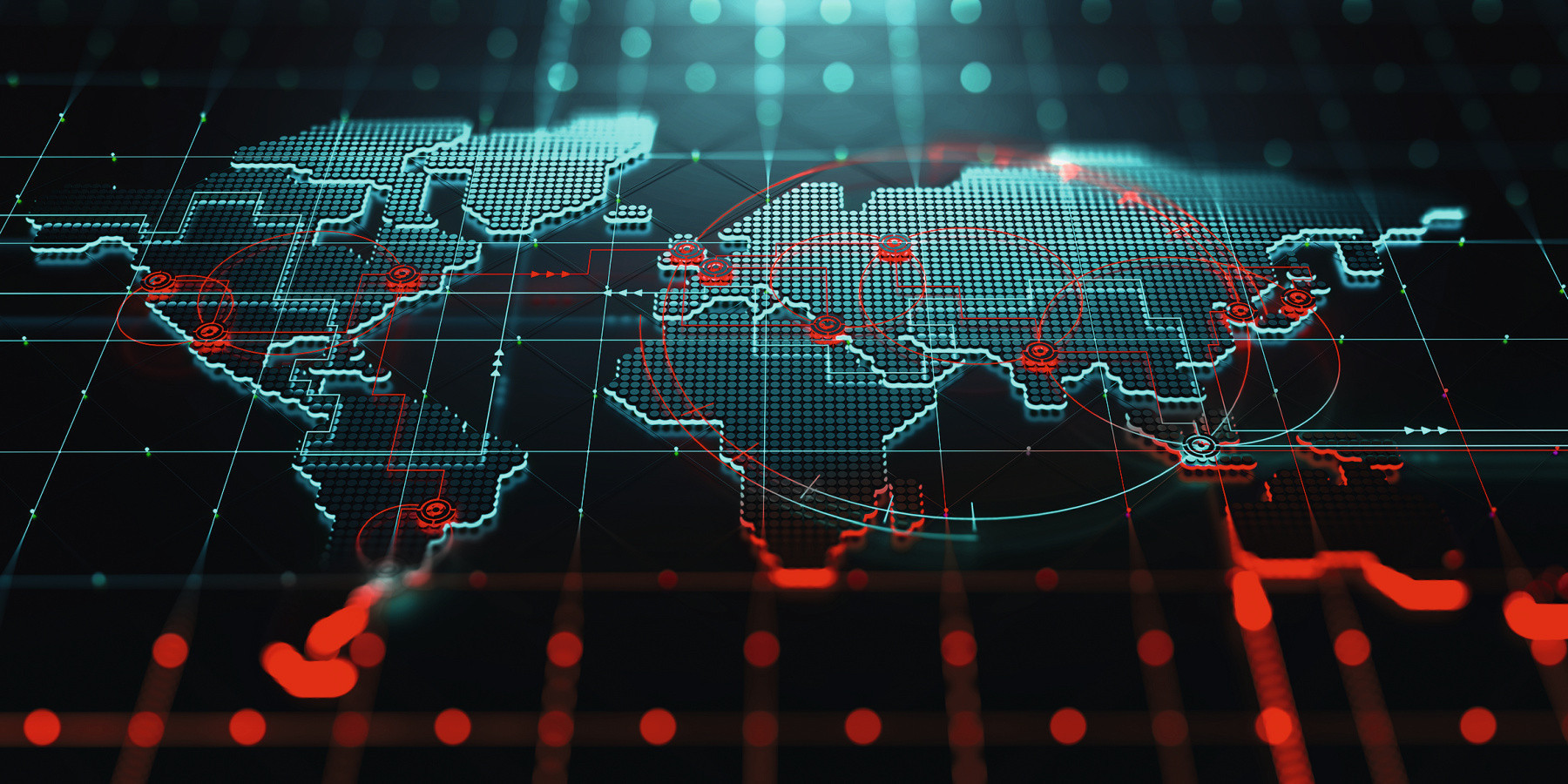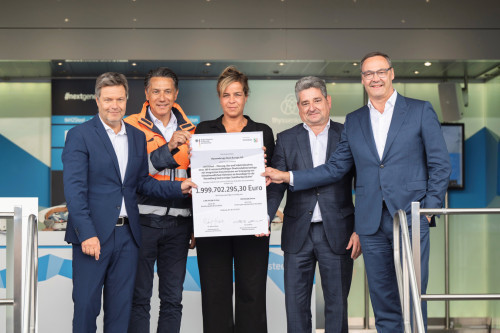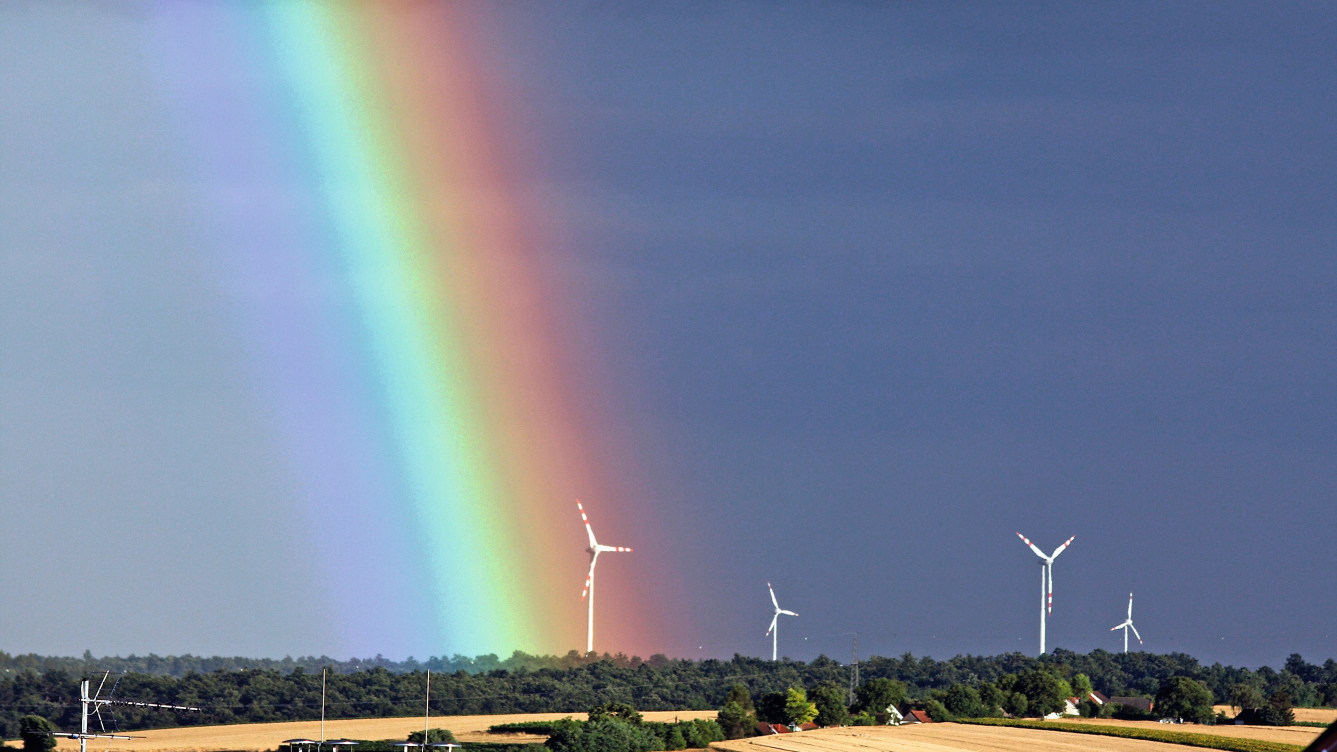The current situation for electroplating and surface technology and the energy-intensive industry is mixed, as new geopolitics and industrial transformation are creating a great deal of uncertainty and a need for adaptation. The industry is challenged - but should also see the challenges posed by the energy, mobility and heating transition as an opportunity.
The spectre of deindustrialization is once again haunting Germany. The main reasons for this are the high energy costs, but also the climate policy, which is often branded as excessive, regulatory and official obstacles and, last but not least, the weakening demography, which is reflected in the shortage of skilled workers. At the same time, the traffic light government is polarizing with legislative actionism, for example with heat pumps in the new Building Energy Act, the planned industrial electricity price and the course set for the development of a hydrogen economy.
 Germany and Europe are currently caught in the crossfire of a new geopolitics: globalization is being partially reversed (Photo: stock.adobe.com/ Siarhei)
Germany and Europe are currently caught in the crossfire of a new geopolitics: globalization is being partially reversed (Photo: stock.adobe.com/ Siarhei)
Industrial SMEs feel overwhelmed by the large number of projects, fear (even) more bureaucracy and - if the industrial electricity price is introduced - preferential treatment for large companies and thus a distortion of competition. The situation is characterized by uncertainty, which is why investment activity remains low with the exception of measures to increase energy efficiency, while doubts about the course being taken and resentment at being bullied by politicians and EU institutions are growing. However, reservations are also high because the energy, mobility and heating transition are projects that are set to take decades, swallow up huge sums of money and whose implementation stands on feet of clay according to the tight schedule. After all, Berlin's BER airport also swallowed up huge amounts of money and time - and damaged the reputation, not only of German project management, at home and abroad. Doubts are therefore understandable given the scale of the challenges. Germany has a lot to lose due to its relatively large share of industry in the gross national product.
Difficult situation is not only home-made
 Let's recapitulate how the current situation came about: With Putin's war against Ukraine, the calculation to secure cheap gas as a bridge to climate neutrality has collapsed. Contrary to the desired climate targets, Germany is now importing fracked gas, which is obtained in a questionable manner, and is accepting an increased share of coal-fired electricity and energy imports, including nuclear power. The result: higher electricity and gas prices. The war and China's rapid growth have also turned the geopolitical situation upside down. While globalization has shaped the world economy since the early 1990s and pushed German exports to new heights, industrial globalization is now being partially reversed, as economist and business journalist Henrik Müller writes in Der Spiegel.
Let's recapitulate how the current situation came about: With Putin's war against Ukraine, the calculation to secure cheap gas as a bridge to climate neutrality has collapsed. Contrary to the desired climate targets, Germany is now importing fracked gas, which is obtained in a questionable manner, and is accepting an increased share of coal-fired electricity and energy imports, including nuclear power. The result: higher electricity and gas prices. The war and China's rapid growth have also turned the geopolitical situation upside down. While globalization has shaped the world economy since the early 1990s and pushed German exports to new heights, industrial globalization is now being partially reversed, as economist and business journalist Henrik Müller writes in Der Spiegel.
Russia is on the outside, China and other countries are increasingly becoming competitors on the global economic stage
The large global market is shrinking: Russia is on the outside, China and other countries are increasingly becoming competitors on the global economic stage because they are now producing cars and machines themselves and are rapidly developing from emerging to industrialized countries. Meanwhile, competition between Western industrialized nations is increasing: the US Inflation Reduction Act, a huge subsidy package for green technologies, is intended to lure innovative companies away from Europe and ultimately aims to give the US a competitive advantage in the transformation and repositioning of the economy and industry in a changed world - to the detriment of Germany and Europe.
Influenced by all the factors mentioned above, the way German companies think has also changed. Influenced by the disrupted supply chains in the coronavirus era and at the start of the war in Ukraine, a growing trend towards resilience can now be observed. Companies want to arm themselves against supply bottlenecks, but are also taking future climate policy necessities into account in their strategic readjustment. After all, carbon footprints will soon be mandatory and this is not just about thecarbon footprint of your own company, but also - in Scope 3 - that of your suppliers.
The difficult economic conditions that companies are facing today are therefore not only home-made, but also result from shifts in global framework conditions. And this also affects electroplating and surface technology, because in addition to the specific local production conditions, its success as an important supplier industry is also dependent on German exports.
Energy-intensive industry under pressure
From macroeconomics back to the economic area between the Oder and Rhine rivers. What is the real situation of the energy-intensive industry and electroplating and surface technology? On the one hand, the latter is still performing quite well economically. As a cross-sectional technology, electroplating and surface technology companies are often active in several sectors of the economy: fittings, watches, automotive components, jewelry, electronics, batteries and solar cells. The list of potential customer sectors is endless and the order situation remains good in many places. This is despite the fact that price pressure has increased significantly: some chemicals, such as hydrochloric acid, have become over 500% more expensive since the beginning of 2022. However, the situation is now somewhat better again. Similar price jumps were also observed for metals, followed by a broad easing.
Large chemical companies are withdrawing parts of their production from Germany due to high energy costs
Meanwhile, the situation on the chemicals market remains tense: Large chemical companies are withdrawing parts of their production from Germany due to high energy costs, which in some cases is leading to new bottlenecks. However, the major players who can afford to relocate are also reacting to the regulations of the European Chemicals Agency (ECHA), which are increasing bureaucracy and driving up costs by making production conditions more difficult.
The reaction of large companies is depressing the mood. After all, small and medium-sized companies are dependent on the domestic market and cannot avoid regulation from Helsinki and Brussels. Due to the cancellation of the CTAK authorization application for chromium trioxide, the mood - especially among chrome platers - is currently at a low point. It is currently unclear what will happen next.
With a view to the future of energy-intensive industries, the latest figures from the International Energy Agency (IEA) also give pause for thought. The IEA is monitoring electricity consumption in Europe. It is rising worldwide, but has been falling in Europe for some time, most recently by 6%, which according to the agency is mainly the result of plant closures and production cutbacks in energy-intensive industries. Particularly affected are
aluminum smelters, steelworks and paper and chemical factories.
Europe is now a net importer of chemicals - despite the fact that the chemical industry in Germany is one of the largest sectors and operates huge plants visible for miles around, for example in the region between Düsseldorf and Cologne, which until recently contributed to a certain self-sufficiency in chemicals on the European continent. This is now apparently gone and the IEA concludes that the future of the energy-intensive industry is at a crossroads. The agency proposes various options, of which only the one that is obviously being pursued by the German government and thus defines the direction of current industrial policy will be mentioned here: The promotion of "green heavy industry", which is in line with climate targets but entails considerable costs.
Green industry: bold vision or naive dream?
 Federal Economics Minister Robert Habeck (left) with NRW Economics Minister Mona Neubaur (center) and thyssenkrupp Steel CEO Bernhard Osburg (right), among others: The decarbonization of the steel industry is costing the government a lot (Photo: thyssenkrupp)A "green industry", supplied predominantly by renewable energy from wind, sun and hydrogen, is a promising vision of the future for some, for others a naïve dream that cannot be reconciled with an efficient industry. In any case, there is currently a veritable boom in research and development in relation to green technologies, as the funding money is loose and investments in hydrogen are taking on "galactic" proportions, as a scientist close to the industry has observed.
Federal Economics Minister Robert Habeck (left) with NRW Economics Minister Mona Neubaur (center) and thyssenkrupp Steel CEO Bernhard Osburg (right), among others: The decarbonization of the steel industry is costing the government a lot (Photo: thyssenkrupp)A "green industry", supplied predominantly by renewable energy from wind, sun and hydrogen, is a promising vision of the future for some, for others a naïve dream that cannot be reconciled with an efficient industry. In any case, there is currently a veritable boom in research and development in relation to green technologies, as the funding money is loose and investments in hydrogen are taking on "galactic" proportions, as a scientist close to the industry has observed.
Meanwhile, the proportion of renewable energies in Germany continues to grow. It recently reached almost 58%. Storage media are seen as a decisive factor in managing the energy transition. This means that surplus renewable energy does not have to be sold to neighboring countries for less than it is worth, but can be stored and used flexibly. One development follows the next and it is probably only a matter of time before suitable storage technologies are available.
Electrification and the in-house production of methanol and hydrogen in Germany would increase electricity demand sixfold
Despite all the frowns about the size of the challenge, there is also positive news regarding the development of a climate-neutral hydrogen infrastructure, as a large part of the existing infrastructure can be converted relatively easily. Nevertheless, as Matthias Schimmel, an expert on decarbonization and hydrogen, calculates in the magazine "Nachhaltige Industrie", electrification and the in-house production of the required methanol and hydrogen in Germany would increase the country's electricity demand sixfold. Achieving this goal seems almost impossible. New partnerships are being considered, for example with North Africa, to produce green hydrogen using solar energy and then ship it to Europe. The development is in flux. Schimmel writes that the current framework does not yet offer the emission-intensive industrial sectors any incentive for the widespread use of climate-friendly technologies. He also warns of the need to quickly adapt the regulatory framework.
Goal: energy self-sufficiency and reducing dependencies on raw materials
Despite all the prophecies of doom, Germany and Europe also stand to gain a great deal if the transformation of industry and the economy is successful: Cheaper energy, a certain degree of energy self-sufficiency and, if the proportion of recycling is increased, a reduction in dependencies on raw materials. This should make companies more resilient and competitive on the global market - if they do not fall by the wayside along the way.
Federal Minister of Economics Robert Habeck, whose ministry declined the request for a statement on the industrial framework conditions in Galvanotechnik magazine, has declared 2023 the Year of Industry. A good opportunity for his ministry to tackle the adapted framework conditions for energy-intensive industry that Schimmel has called for. An industrial electricity price may be part of the answer. However, the fears of medium-sized companies in the sector, which may not benefit from the subsidized price, must also be addressed. And a start must be made on restoring production and investment security in the sector. After all, the transformation of society, the economy and industry is a fascinating project that the next generation is very enthusiastic about, as the increase in the number of students studying science and technology courses shows. Confidence or doubt?
If you ask me, the path we have chosen offers great risks as well as great opportunities - including for electroplating and surface technology, without which a very large proportion of the technical solutions of the future will not be possible.
- Robert Piterek -


